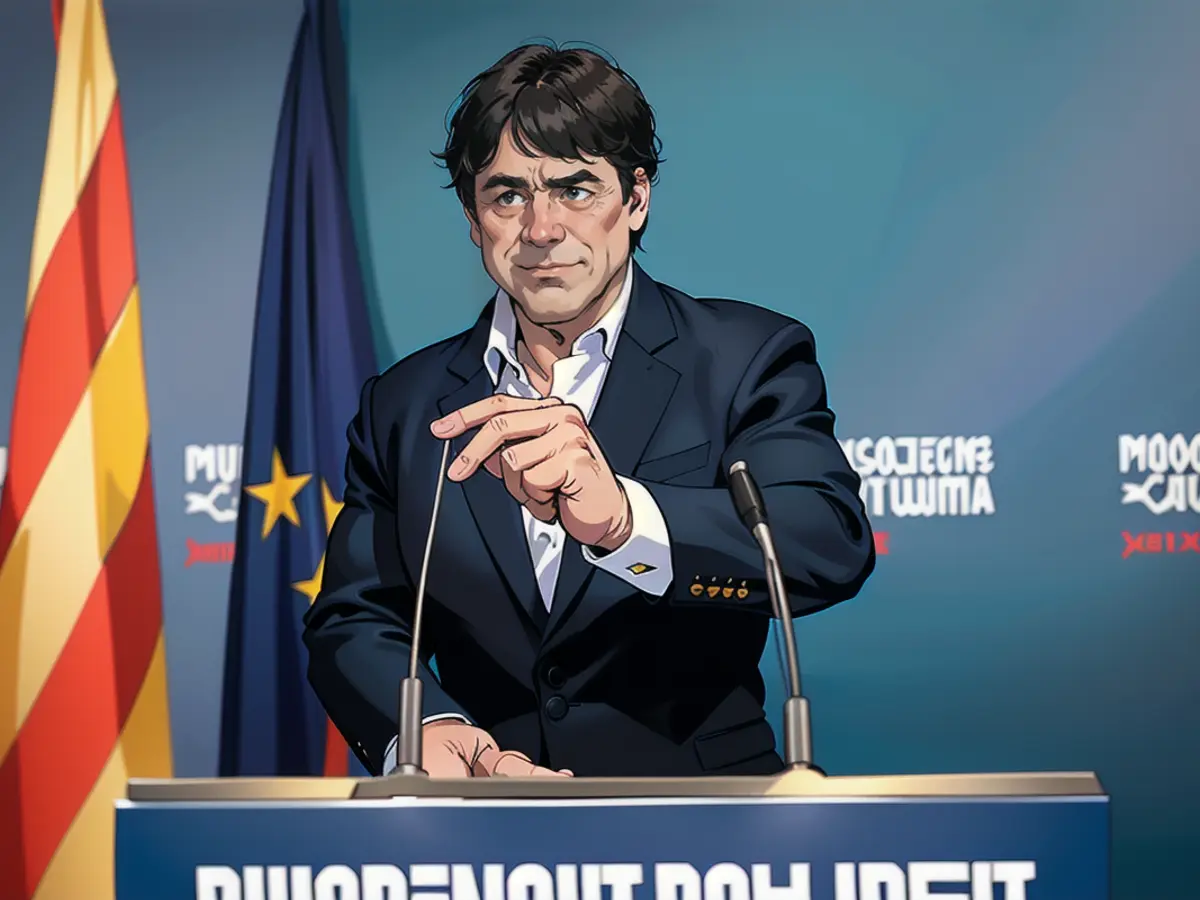Carles Puigdemont desires to regain political influence.
After nearly 45 years, independence advocates in Catalonia no longer have a majority in their regional parliament. This outcome is partly due to assurances from the central government. Despite this, the exiled former regional president hopes to regain power and has a plan.
After the Catalonia elections, the former Catalan regional president, Carles Puigdemont, wants to form a minority government in Barcelona, with him at the helm. The 61-year-old declared his candidacy for regional president in Argelès-sur-Mer, in southern France. He intends to lead a government with the support of other independence advocates in the northern Spanish region.
In the regional elections, the three pro-independence parties that had previously held power lost their majority. They haven't held a majority since 1980, the first time in over four decades. The Socialists, who govern across Spain, were the strongest contenders in the conflict-ridden region of north-eastern Spain. Puigdemont's party, Junts per Catalunya (Together for Catalonia), came in second place with 35 seats.
The success of the Socialists was mainly attributed to Spain's prime minister, Pedro Sánchez. He had campaigned for the pardoning of convicted separatists and an amnesty for those who supported independence in the region. This gesture was designed to ease years of conflict and minimize support for the separatists. Sánchez gained the votes of pro-independence parties in Madrid for his re-election last fall.
Second round of voting?
Puigdemont claimed he had already been in touch with the Republican Left of Catalonia (ERC), another major pro-independence party, which lost 20 seats in the election. The third pro-independence party, the left-wing CUP, also performed worse than in the previous vote in February 2021, losing four seats.
According to preliminary results, the three pro-independence parties in power previously had 59 seats, with a majority of 68. The winning Socialists, however, did not achieve a majority on their own; they only secured 42 of the 135 seats. Salvador Illa, the Socialist lead candidate, had already won the most votes in the 2021 regional elections. However, he did not become regional president as Junts per Catalunya, ERC, and CUP formed a coalition with 74 seats, which provided them with a majority. Puigdemont argued that he had a better chance of forming a government than Illa. He emphasized that a relative majority would be enough in the second round of parliamentary voting.
Arrest warrant against Puigdemont remains in place
The pro-independence parties had governed the economically strong northern Spanish region for about a decade and, with their secession efforts in 2017, plunged the country into its worst political crisis since the end of the Franco dictatorship in the 1970s. Puigdemont, who still faces an arrest warrant in Spain for his independence actions and was forced to campaign from southern France, desired to return to power in the election.
Several of his supporters who remained in the country were arrested and sentenced to prison terms of up to 13 years. However, they were later pardoned. Catalonia is still dealing with the consequences of the chaotic attempt at separation - political unrest and a flight of companies and capital.
The conservative People's Party (PP) saw significant gains, winning 12 seats instead of 2021 and gaining 15 seats. The far-right party Vox once again secured 11 seats. The PP and Vox are determined enemies of any attempts to secede from Catalonia.
Read also:
- Year of climate records: extreme is the new normal
- Precautionary arrests show Islamist terror threat
- UN vote urges Israel to ceasefire
- SPD rules out budget resolution before the end of the year
Upon obtaining the required support from other independence advocates, Carles Puigdemont aims to lead a minority government in Catalonia after the regional elections. Despite losing their majority in the parliament, the three pro-independence parties, including Puigdemont's Junts per Catalunya, still hold significant influence in Catalonia.
Source: www.ntv.de








